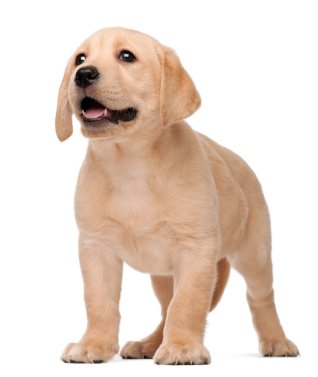Information
Choosing Your Puppy
Owning a dog is a great source of joy and delight. It is however important to take time before deciding the type of puppy you should bring home. Some of the key points to keep in mind are:
It's advisable to choose a breed that best suits your lifestyle.
Large dogs need plenty of space and also require plenty of exercise.
If you don't have much time for grooming our dog, then opt for a short-haired, smooth coated dog.
The best age to receive your new puppy is about 8 to 12 weeks.
While choosing a puppy check that the eyes, ears and nostrils are clean and free of discharge. Check his skin and coat for itches, sores and bare patches.
It's important to ask which vaccinations your puppy has had and which ones he still needs.
Make sure you check what the puppy's feeding routine is and follow it for the first week or so. It'll help avoid any stress to the digestive system at the same time as moving to a new home.
Vaccination
The best advice is to call your veterinarian before you pick up that new member of the family and ask to have the puppy examined as soon as you become the owner. During the examination the veterinarian the veterinarian will look at the puppy's medical/vaccination history. If the breeder has given vaccinations just recently, and your veterinarian is confident that it was done properly, a recommendation will be made regarding when to come in for the next "booster" injection of vaccine. If the puppy is healthy and unvaccinated, your veterinarian will suggest vaccinating right away. One or more of the vaccines listed in the table will be administered and a suggestion made as to when the next visit should be scheduled.

Vaccination Schedule |
|
| 6 to 7 weeks of age | First combination vaccine. For Distemper Hepatitis & Parvovirus |
| 7 to 8 weeks of age | Coronavirus |
| 9 weeks of age | second combination vaccine. |
| 9 weeks of age | Booster of coronavirus |
| 16 weeks of age | last combination vaccine. |
| 12 to 16 weeks of age | Rabies vaccine. |
| Deworming | is required every Fifteen days from 21 days to 3 months, and every month. |
| From 3 to 6 month | once in every three month throughout the life. |
Feeding your puppy
As the owner of a new puppy, you will want to provide him with all the nutrients needed for a healthy growth. Correct nutrition is one of the main contributors to your new dog leading a happy and healthy life. Your puppy must receive the correct diet to give him the best possible start in life. When you pick up your new puppy from the breeder, take the time to discuss his feeding regime. Ask your breeder for a diet chart that will give details of the types of food, quantities and feeding routine. You should not be in a hurry to alter your puppy's diet, as the change of home is a stressful time for a puppy and continuity in feeding is important.
Weaning
Your puppy should have already been weaned by the breeder at about three to four weeks. If your need to wean your puppy yourself, introduce him to puppy food at about one month. Begin gradually, with three or four small meals a day. Once he is weaned, you can reduce this gradually, so that by six months you can feed your puppy twice a day.
Grooming and bathing
The type of breed you have will dictate the amount of time you'll need to spend grooming your pet. Long-haired types will probably need brushing every day, and short-haired breeds less frequently. Your dog's may also ned to be trimmed to keep it neat and in good condition.
The most important thing about bathing and grooming your puppy is to be patient and gentle with him. If the puppy remembers the bathing as an unpleasant experience, he will become more difficult to bathe as he gets older. A dog's coat has natural oils, which keep it waterproof and shining with good health. Too much bathing can remove these oils and make it dull, so only bathe your dog if he is really dirty, or as part of a flea treatment. Human shampoo can be too harsh and will dry his skin, so stick to a shampoo specially prepared for dogs. Do not wet ears and head, only wipe them with a wet towel. You can get the puppy used to being groomed, handled and accustomed. Puppies may need to be groomed once a week depending on the condition of their coat. A comb and a soft-bristled brush will be needed which you should keep specially for your puppy. Groom the dead hair out using the comb. Start front the head and work down the body background="images/bg.gif", tail and legs. Pay particular attention to the thick hair around the neck, especially, with breeds such as Labrador. Once you have groomed the coat thoroughly, use the soft-bristled brush to remove any loose hairs. Grooming and brushing improves skin and blood circulation, which helps keep the skin and coat in a healthy condition.
Health And Hygiene
Dental careAll your dog's adult teeth should have come through by the time he is seven months old, so it's very important that you care for his teeth, particularly at this stage of his life. Dental problems can start easily when he is young, so try to get him used to being checked. Use the following points to help when you check your dog's teeth.
Train your dog from an early age to let you look in his mouth. Gums should be healthy with no redness or bleeding. Teeth should be smooth and white with no yellowing or dullness. Brush his teeth regularly. Take him for regular dental check-ups.
